Thailand-India Technical Education Cooperation
<p style="margin: 0cm 0cm 0pt" class="MsoNormal">After finishing Thailand-India Technical Education Cooperation Panel Discussion on April 1, 2007, we had interesting follow-up activities and created co-operation between Thailand and India. We recorded “21st Century” TV Program on co-operation in Human Resource between Thailand and India. The program was on air on May 9th , 2007 on Channel 11 at 2.05-2.55 pm. The speakers consisted of :</p> <p style="margin: 0cm 0cm 0pt" class="MsoNormal"></p>
1. H.E.Ms.Latha Reddy, India Ambassador
2. A.K. Sravat, Vice President Business Development, Siemens Limited
3. Pramod M.Jain, President, A.G.Union Ltd.
4. Mukund Rao, Managing Director, KSL Chemicals Co., Ltd.
5. Assoc.Prof. Nitin Kumar Tripathi, Femote Sensing&GIS School of Engineering and Technology, AIT
6. D.Devadas , Chief Operating Officer&Group President
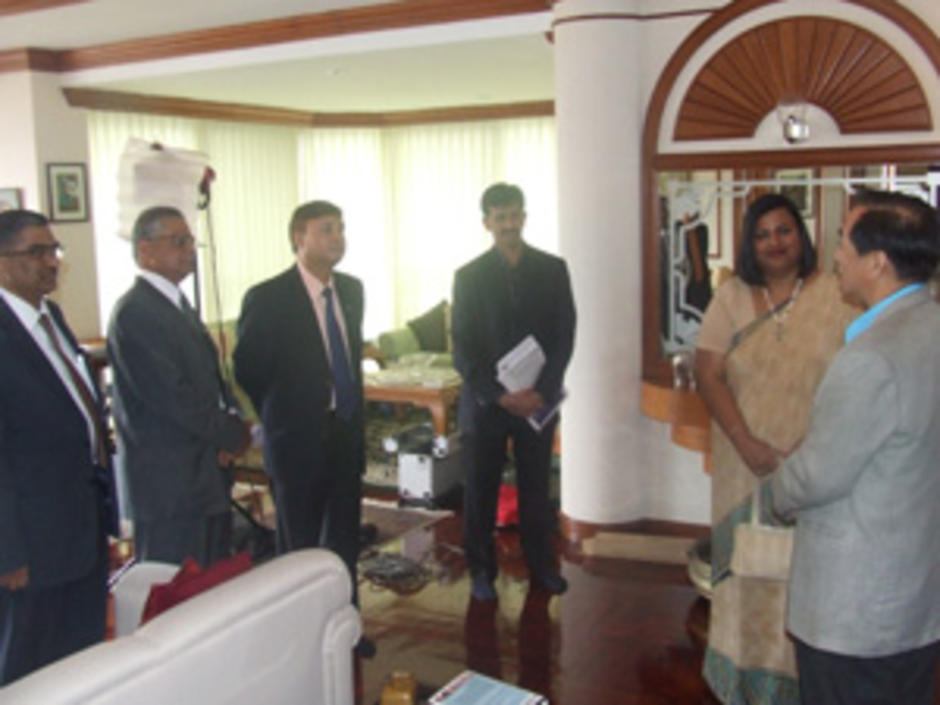
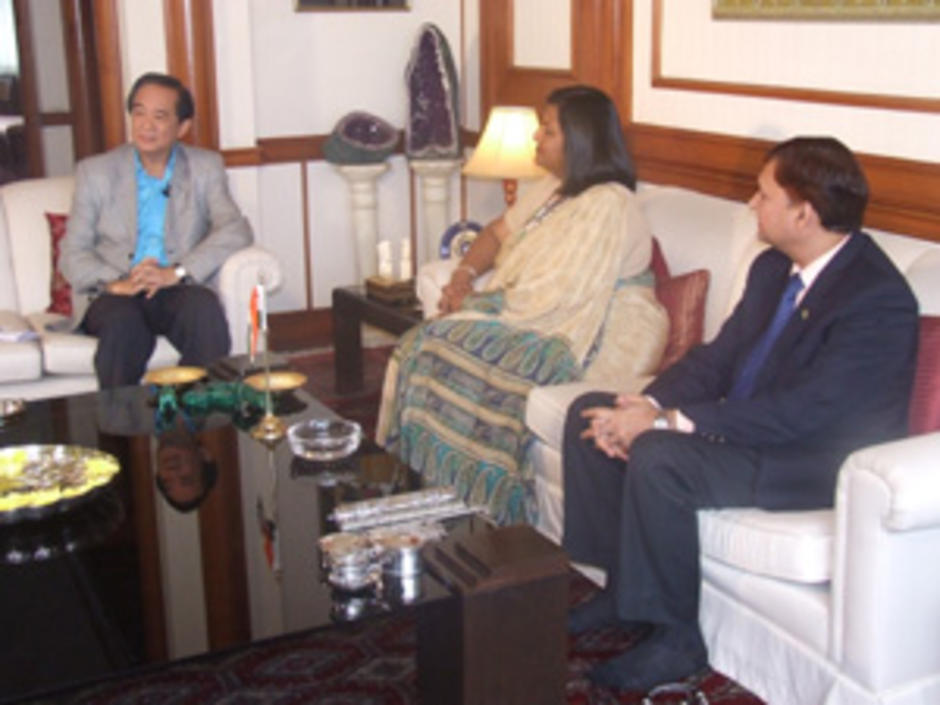
</span><p> 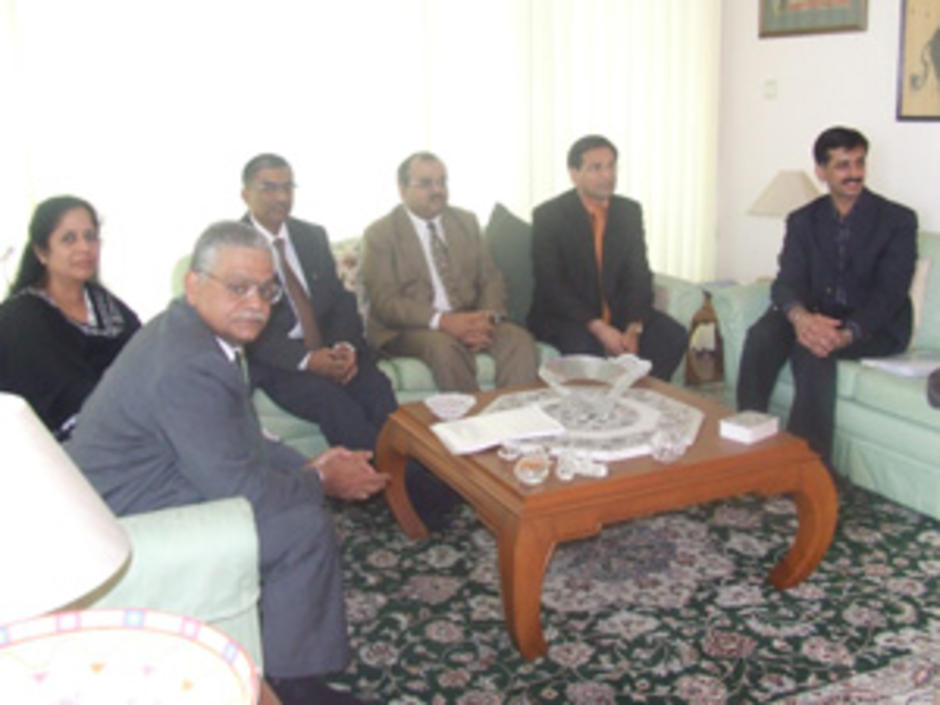 </p><p>
</p><p> 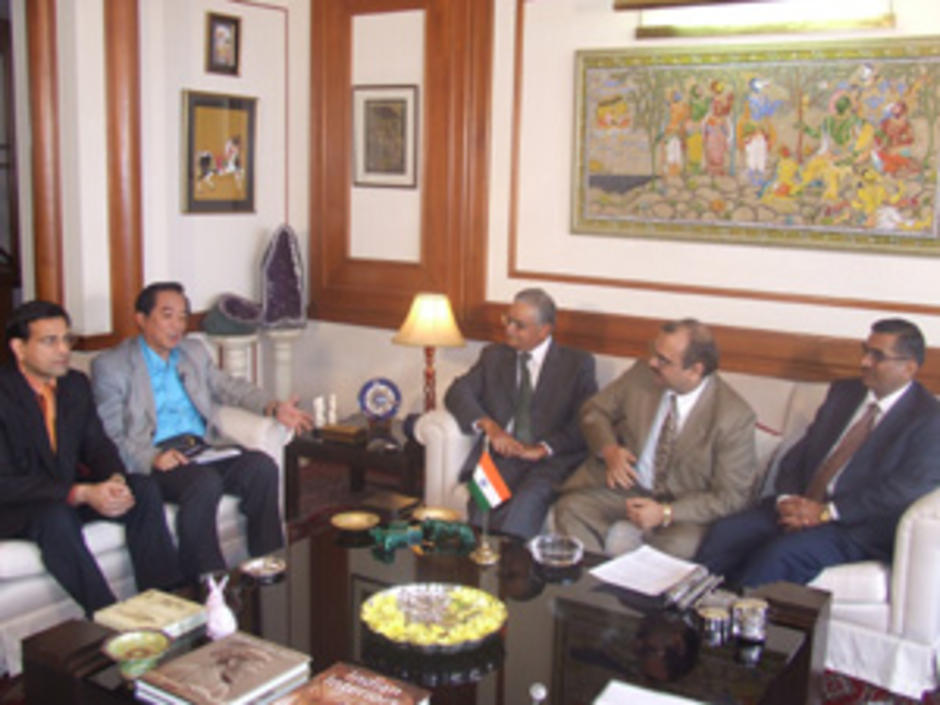 </p><p></p><p>Thailand-India Technical Education Cooperation</p><p></p><p>Indian Institute of Technology Alumni Association, Thailand invited Prof.Dr. Chira Hongladarom, Secretary-General, Foundation for International Human Resource Development to speak in the panel discussion on “Promoting Cooperation in Technical Education between Thailand and India” on April 1, 2007 at Novotel Lotus Hotel, Sukhumvit 33, Bangkok.</p><p></p><p>It was a great honor to have H.E. Ms. Latha Reddy, the Ambassador of India to preside the opening ceremony. She emphasized the strong cultural links between Thailand and India. Moreover, these two countries share several commonalties such as social values, handicraft, food habits and so on. These will produce potential benefits for commerce and diplomacy. They will also enhance cooperation in the education field.</p><p></p><p>Afterwards, Mr. A.J. Rego, the moderator of the panel discussion on “Promoting Cooperation in Technical Education between Thailand and India” invited Prof.Dr. Chira Hongladarom, Secretary-General, Foundation for International Human Resource Development to speak. He admired contribution made by several Indian scholars. Before he finished his job as the Lead Shepherd of APEC HRD Working Group, he invited an Indian expert to speak about outsourcing. Thailand will be grateful for India’s investment in technical engineer. He encouraged the establishment of a small committee consisting of universities and Ministry of both countries to create cooperation in technical education. Recently, he has proposed the establishment of ACD HRD Center and would support Thailand and India cooperation.</p><p></p><p>Later, Prof. Numyoot Songthanapitak, President of Rajamangala University of Technology Thanyaburi, presented his university’s details. According to his speech, his university trains students to be technicians skillful in handling situation. He tries to improve the quality of graduates to be more accepted in the labor market. His university would like to get support in improving engineering and the teaching facility. He expected the cooperation with Indian institutes. In the future, his university will focus more on research and innovation.</p><p></p><p>Next, Dr. Sadananda, Vice president (Research), Rangsit University made a presentation on “Cooperation-Holy Grail of Changing Paradigm”. According to his speech, high education is not sustainable without research. Money is in research and increases. To be a research-based university, it needs expensive equipment, highly paid professors and good libraries. IIT should contact industry focus more on research. </p><p>Then, Dr. Sant Bhatnagar said that he made students exchange program. He found that Thailand had a shortage of technical students. He proposed the collaboration between laboratories and farms especially rubber. India should set up good labs in Thailand and produce good scientists. India’s Ministry of Human Resource is willing to help.</p><p></p><p>Moreover, Mr. Ambarish Thiwari said that he has been in Thailand for 26 years and had chances to meet many people from many countries with different needs. He proposed the collaboration among neighboring countries to share experience and organize teacher exchange programs supported by government and incentive.</p><p></p><p>Finally, Mr. A.K. Sravat, Siemens placed a high emphasis on intellectual capital. He encouraged applied research. He also proposed teachers and students exchange programs and collaboration among institutions.This is an interesting discussion and we welcome comments from you about cooperation in Technical Education between Thailand and India. </p><p>
</p><p></p><p>Thailand-India Technical Education Cooperation</p><p></p><p>Indian Institute of Technology Alumni Association, Thailand invited Prof.Dr. Chira Hongladarom, Secretary-General, Foundation for International Human Resource Development to speak in the panel discussion on “Promoting Cooperation in Technical Education between Thailand and India” on April 1, 2007 at Novotel Lotus Hotel, Sukhumvit 33, Bangkok.</p><p></p><p>It was a great honor to have H.E. Ms. Latha Reddy, the Ambassador of India to preside the opening ceremony. She emphasized the strong cultural links between Thailand and India. Moreover, these two countries share several commonalties such as social values, handicraft, food habits and so on. These will produce potential benefits for commerce and diplomacy. They will also enhance cooperation in the education field.</p><p></p><p>Afterwards, Mr. A.J. Rego, the moderator of the panel discussion on “Promoting Cooperation in Technical Education between Thailand and India” invited Prof.Dr. Chira Hongladarom, Secretary-General, Foundation for International Human Resource Development to speak. He admired contribution made by several Indian scholars. Before he finished his job as the Lead Shepherd of APEC HRD Working Group, he invited an Indian expert to speak about outsourcing. Thailand will be grateful for India’s investment in technical engineer. He encouraged the establishment of a small committee consisting of universities and Ministry of both countries to create cooperation in technical education. Recently, he has proposed the establishment of ACD HRD Center and would support Thailand and India cooperation.</p><p></p><p>Later, Prof. Numyoot Songthanapitak, President of Rajamangala University of Technology Thanyaburi, presented his university’s details. According to his speech, his university trains students to be technicians skillful in handling situation. He tries to improve the quality of graduates to be more accepted in the labor market. His university would like to get support in improving engineering and the teaching facility. He expected the cooperation with Indian institutes. In the future, his university will focus more on research and innovation.</p><p></p><p>Next, Dr. Sadananda, Vice president (Research), Rangsit University made a presentation on “Cooperation-Holy Grail of Changing Paradigm”. According to his speech, high education is not sustainable without research. Money is in research and increases. To be a research-based university, it needs expensive equipment, highly paid professors and good libraries. IIT should contact industry focus more on research. </p><p>Then, Dr. Sant Bhatnagar said that he made students exchange program. He found that Thailand had a shortage of technical students. He proposed the collaboration between laboratories and farms especially rubber. India should set up good labs in Thailand and produce good scientists. India’s Ministry of Human Resource is willing to help.</p><p></p><p>Moreover, Mr. Ambarish Thiwari said that he has been in Thailand for 26 years and had chances to meet many people from many countries with different needs. He proposed the collaboration among neighboring countries to share experience and organize teacher exchange programs supported by government and incentive.</p><p></p><p>Finally, Mr. A.K. Sravat, Siemens placed a high emphasis on intellectual capital. He encouraged applied research. He also proposed teachers and students exchange programs and collaboration among institutions.This is an interesting discussion and we welcome comments from you about cooperation in Technical Education between Thailand and India. </p><p>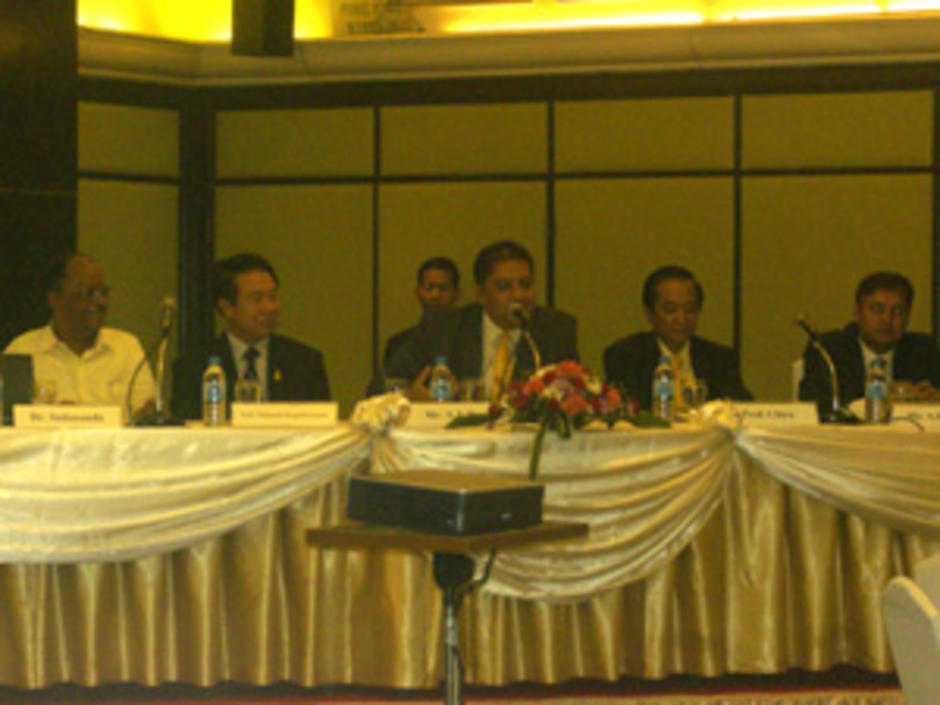 </p><p>
</p><p>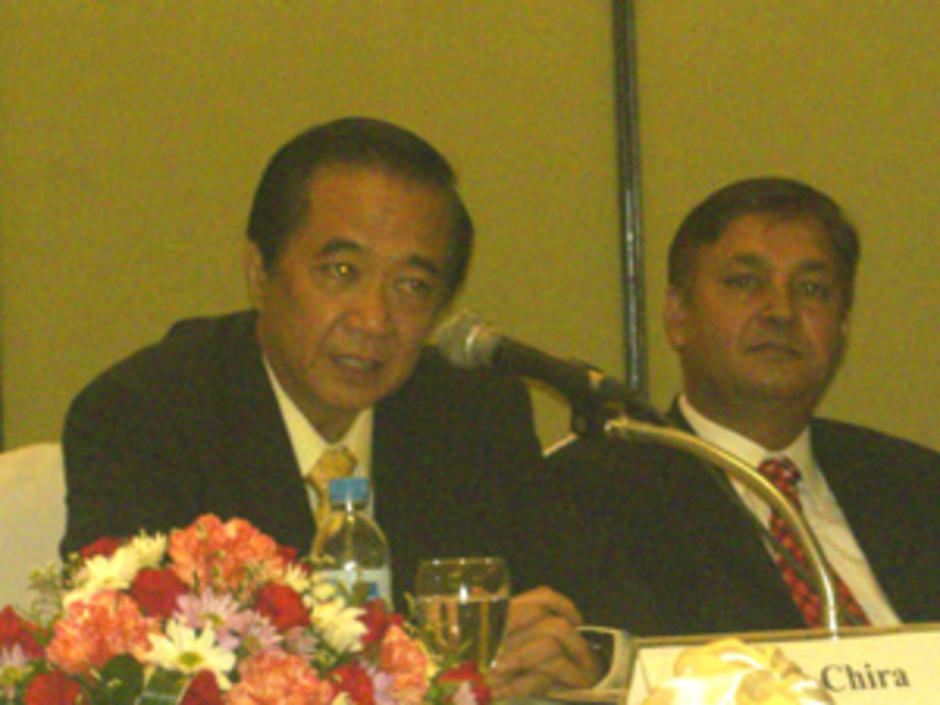 </p><p></p><p></p>
</p><p></p><p></p>
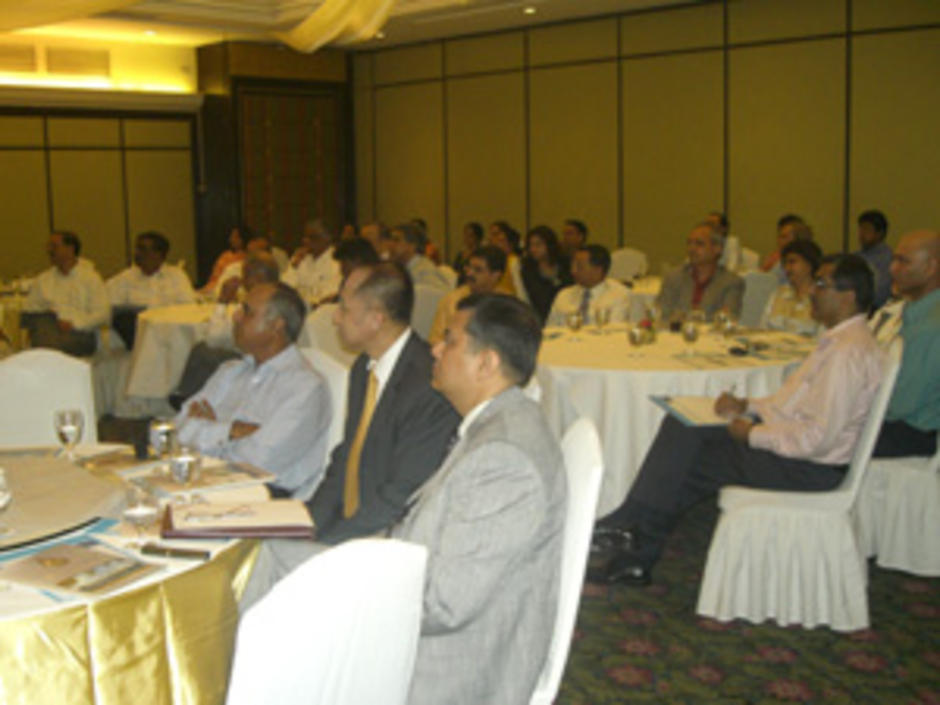
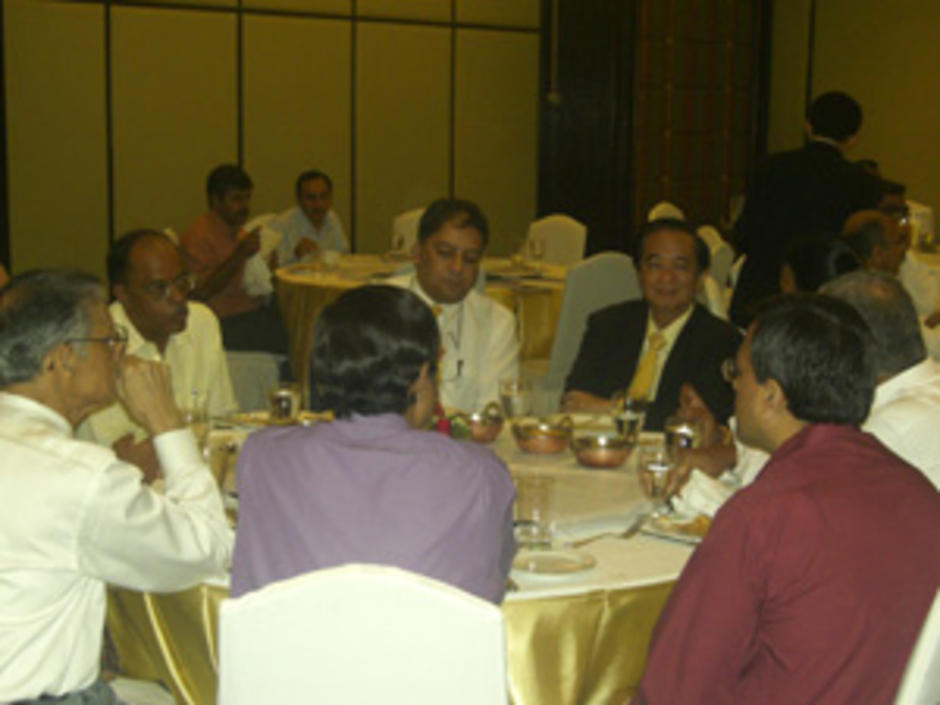
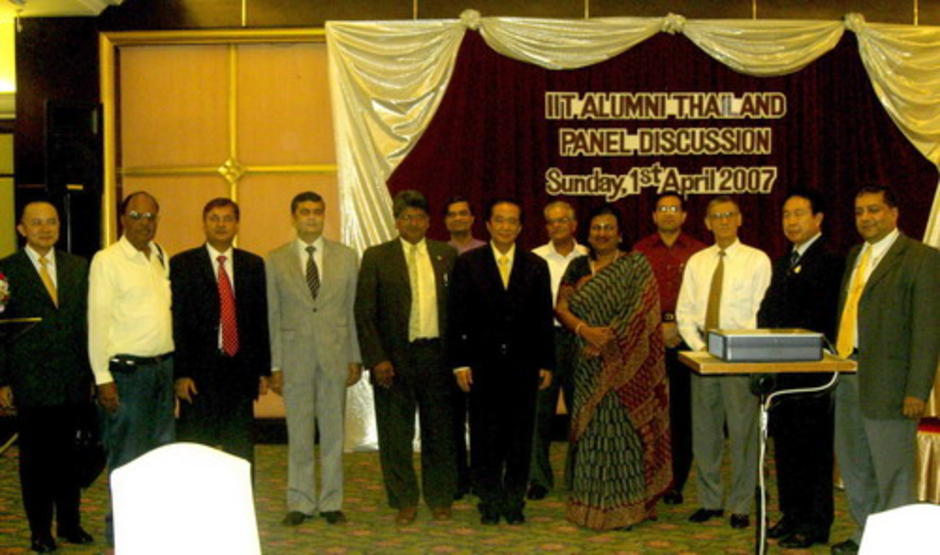
</span></span>
ความเห็น (5)
Mr. D. Devadas
It was nice talking to you yesterday. Thank you for your printout regarding the summary of panel discussion on Thailand – India Technical education. During the short discussion you had indicated that you would appreciate any feed back or a detailed summary of the panel discussion.
In the meantime, I would like a write a few points which I missed to express during yesterday’s recording. I feel that these points deserve some sort of expression.
- Thailand can engage highly qualified English language teachers from India at very reasonable cost instead of so called ‘native speakers’ who are expensive. These dedicated and qualified teachers can achieve much better and faster results as we are culturally so similar to each other. A reasonable proficiency in English Knowledge for all Thai Citizens will go a long way in Technical and Higher education & Research in Thailand, the land of smiles.
- India can also assist Thailand in creating interests in Maths & Science education among young Thai students at Higher secondary level. This will lay a strong fundamental foundation for technical education and research.
Mr. D.Devadas and Mr. Pramod M. Jain
Summary of Promoting cooperation in technical education between Thailand and India. by Mr. D.Devadas and Mr. Pramod M. Jain
Brief : India and Thailand both have some good universities and institutions for higher learning in technical fields.
How can we enable and promote greater co-operation between these institutions?
IIT Alumni Panelists :
-Dr. Sadananda, Vice President (research), Rangsit University.
-Dr. Sant Bhatnagar, Consultant (Applied Chemistry), Founder Member IITAAT
-Mr. A. N. Tiwari, (Usha Siam Steels) and
-Mr. A.K.Sravat (Siemens Ltd.,)
Guest Panelist Speakers:
-Prof. Chira Hongladarom- Secretary-General, Foundation for International
Human Resource Development
-Prof. Numyoot Songthanapitak-President of Rajamangala University
Moderator:
-Mr. A. Rego, Asian Disaster Preparedness & Management centre
- H.E.Ms.Latha Reddy, the Ambassador of India presided over the opening ceremony. She emphasized on the cultural links between India and Thailand. The two countries share family & social values, food habits etc. Both countries have excellent handicrafts. Our commonalities will help in forging co -operation in commerce, diplomacy, education and Human Resources
development.
Prof.Chira :
He admired the contribution made by several Indian Scholars. He served as Lead Shepherd of APEC HRD Working Group and during his tenure has requested Indian experts to speak about outsourcing. Thailand will benefit from
India's investment in Technical and Engineering HRD. He felt that a small committee should be established consisting of representatives from
Universities and HRD Ministries of both countries to create co-operation in Technical education. Recently he has proposed the establishment of ACD HRD Centre which will support Thailand and India Cooperation.
* Thailand has a historical weakness in Maths & Science and India is historically strong in these two disciplines. Co-operation in these two areas is needed. This can then expand into Science & Technology as well.
* Promoting a Common HRD Committee to be situated in Middle East / SEA in which Thailand and India can be prime movers.
Prof.Numyoot :
* Expressed initial keenness to co-operate with Indian Universities.
* Invitation to IIT AAT members of various faculty to deliver Guest lectures at RMUTT (student seminars)
* RMUTT has signed MOU 's with about 35 Universities around the world. (I saw the RMUTT Brochure : not even 1 University in India). RMUTT is willing to sign such MOU with any suitable Universities in India.
Prof.Sadananda :
* Most Teaching Universities want to change to Research Universities. Higher education can not be sustained without Research. Research is no longer an intellectual pastime. There is plenty of money in Research. Instead of Students pay to pursue research studies, the University should
pay students to do research. Indian Universities which are strong in Research can co-operate with Thai universities in Joint research. Exchange
programmes between Indian and Thai universities will be helpful to both
* Sharing is necessary and possible. Digital convergence / IT / Net etc have narrowed the distances. It is now easier and faster for both sides to share resources, expenses, experience, knowledge etc.
* Direct interactions are required sometimes : Visiting professors.
* Bangkok is ideally situated (geographical) as a hotspot between the growing economies like ASEAN countries, Japan, Australia, India etc. Most companies schedule their meetings in Bangkok as it is cheaper, convenient
and has all required infrastructure.
* Thailand and India have a lot of similarities and complimentaries.
* AIT and some Indian Universities have contracted for Integrated Under Graduate / PG programmes so that Students can pursue Graduate studies in India and continue their PG studies in Thailand. IIM and AIT have cooperated for Management studies.
* Royal Thai Govt and Govt. of India have several co-operation agreements for Education, Research etc.
Dr.Bhatnagar:
* Professor to Professor Interactions between Indian and Thai universities, so students can avail of scholarships etc for higher studies.
Visiting professors / student exchange programmes between Indian and Thai universities
* Creation of good National laboratories for R & D with India's assistance in Thailand.
* A train's speed is that of the Engine's. So development of Management skills in Thailand is very important with Indian assistance.
* There are good 'brands' like Chula, Sahasin, Mahidol, Thammasat, Kasetsart, Rajamangala etc. Indian Universities can co-operate with these centers of excellence.
Mr.Tiwari :
* Sharing of knowledge, resources etc can be need based between Thailand Indian Universities.
* Should promote 'Lecture Series' in Thailand by Indian Academics and Achievers in fields like IT, Science & Technologies in various faculties.
* Lecture series in India by Thai Professors / Researchers : say in Nano Technology etc.
* Change of mind set is required on both sides. Instead of 'looking west', let us look towards each other. Thai students can study in India instead of USA, Australia, Europe etc. The cost of education in India is far cheaper in India. More and more Indian students can think of PG studies in Thailand : AIT etc.
* Exchange programmes.
Mr.Sravat :
* Financial Capital plus the HR Capital is the market value of any company.
* Fundamental research is very expensive and capital intensive. Applied research is more practical.
* Collaboration between Comparable Universities in India and Thailand
* Linkages between IIT's / other Universities in India and Thai Universities
* Shortage of Human Capital in Thailand (Instrumentation engineers, R& D Technologists) ; lack of numbers in Thailand and excess of numbers in India may be complimentary to each other
* Engineering education is very cheap in India. Thai students should try Indian universities more and more instead of USA.
Points discussed by all panelists during panel discussion/summing up etc
after initial remarks:
* India is very strong in IT. India can assist Thailand in this field.
Common research, co-operation etc
* Research can be funded by industries.
* Indian companies like Birla Group in Thailand, big Thai companies etc can offer 'Internships' for Indian Students and large industrial groups in India can offer 'internships' to Thai students so that both sides will get some exposure to the other side.
* Soft skills, Discipline, Artistic activities, Creative workmanship, perfectionism etc of Thai students can be 'borrowed' by Indian educationalists.
* Bangkok's unique 'Hub' location can be further developed by Indian companies, Universities etc as a venue for meetings, seminars etc.
* Entrepreneurship development around IIT's in India - Incubators -can be a 'model' for Thailand.
Points that came up during informal discussions during lunch time / question
hour:
* Thailand should attach more and more importance to English language education in primary schools.
* As Thailand is weak in Maths and Science, India's help can be sought for developing the Maths / Science teaching in Elementary, Primary,
Secondary and Higher Secondary (School) education in Thailand. This is a fundamental / basic and most important need. So we should discuss more about this than the Technical education and higher education as without this
fundamental improvement, the next step can not be achieved.
* Thailand can take more and more English language teachers from India (who are very reasonably priced) rather than depending on expensive so called 'native' speakers / farangs to teach English in Thailand. Indian teachers are highly qualified and will be dedicated. As India and Thailand have similar culture and values, these teachers can achieve the targets much
faster without distractions.
* Some Thai Industrialists of Indian origin have expressed some interest to invest in a Technical Education Institute in Thailand if any of
the IIT's or other such Universities in India are willing to collaborate. (IIT Thailand ?)
* Many Thai Universities are willing to enter into MOU 's with Indian Universities and vice versa. This process should be initiated by the IIT
Alumini and ultimately, this may lead to mutual recognition of each other's curriculum and degrees etc.
Dr. Sant K. Bhatnagar
Dear all participants,
I was stopped while giving my views during the panelist's discussions due to
paucity of time. However I may like to state the followings which could be
added if necessary:
1. Since we live in Thailand and had been here for past many years, we are sort of ambassadors of India to Thailand and propagate what is good for both India and Thailand.In this respect I may state that while Thai students are
handicapped due to their English speaking skills and speech, yet most of the Bangkokians are quite adept in English. Only thing they need is a three months stint in refresher course in India before being inducted into IIT's. I know when I was sent to Germany by Bayer India Limited, I was sponsored to spend three months at Max Muller Institute in Pune, where day and night one
had to speak German language.This exercise is necessary if we want to develop our relations with a neighbourly country like Thailand.
2. We need to have not only student exchange programs but also teacher exchange programs. Professors from IIT could come to Thailand on one years stint with some University where they can guide research and teaching activities to sharpen the skills and thinking process. The most important part is to develop the thinking process ,
Ideas ,ideas and ideas
Training, Training, Training
Think, Think , think
Action, Action, Action
Speed , Speed , Speed
Once we have attained these, the students here will definitely be able to cope up IIT curricular. Our own children, who studied in Thailand schools
had to go through the rigors of Indian education when they entered IIT's or BITS Pilani. It was not an easy task and many left and came back. However, many did succeed who had the will to get the degree from such prestigious Institutes.
3. We need to evolve a system along with Prof Chira and Prof Namyut so that chosen Thai students could go through refresher English course so that they can understand our way of speech. They come across here many types of
English speaking people from USA, UK, Germany, Singapore, Malaysia, Australia, India and many more. Each one has a different speech accent which confuse them.
4. They should not be asked to go through the entrance examination as was earlier done for NRI. The professors could pick up the best students and sponsor them for such educations which will benefit them after their return
to home country.We should also specify the subjects which we wish to pursue at graduate or even higher level like Masters and PhD. It is necessary to take the fist step froward.
4. We need to involve the governmental agencies like the Embassy of India to be our via media. Anything we do has to be through them to make the process successful. Of course, very strong follow up will be required .
5. As there is now shortage of professors and teachers in India, even Senior retired professors could be sent as visiting professors to Thai Institutes. I know Prof Sandan Kumar De from IIT Kharagpur ( from Rubber Technology
Department) after his retirement , was here with Mahidol University for three to six months to assit and apprise them about IIT style and also took
lectures. Presently a lot of Japanese retired professors are hired who are helping them.
Let the committe now plan the mode of action and give it a flip.
Regards,
Sant K. Bhatnagar
Pramod M. Jain
มูลนิธิพัฒนาทรัพยากรมนุษย์ระหว่างประเทศ
เมื่อวันที่ 24 สิงหาคม 2550 คณะกรรมการความร่วมมือไทย-อินเดียด้านการศึกษาเทคโนโลยีได้ร่วมกับมหาวิทยาลัยเทคโนโลยีราชมงคลธัญบุรีจัด Inaugural Lecture on "Technology for Development"
สนใจคลิกดูรายละเอียดได้ที่นี่